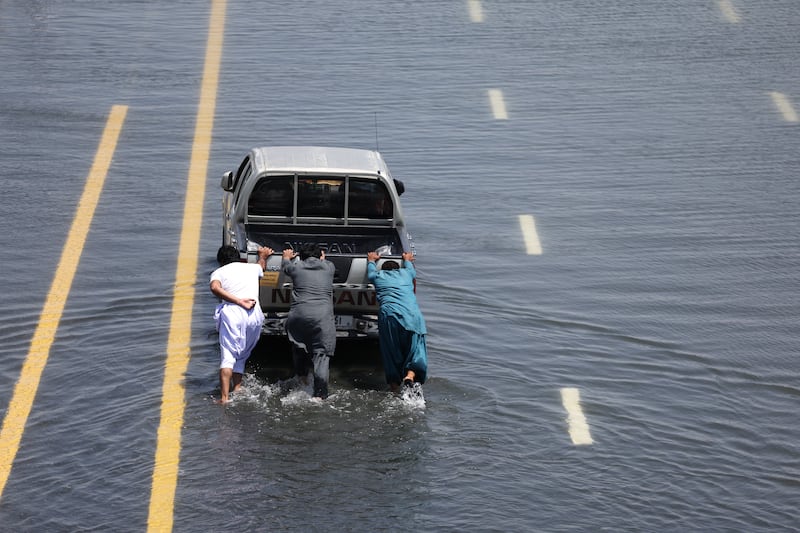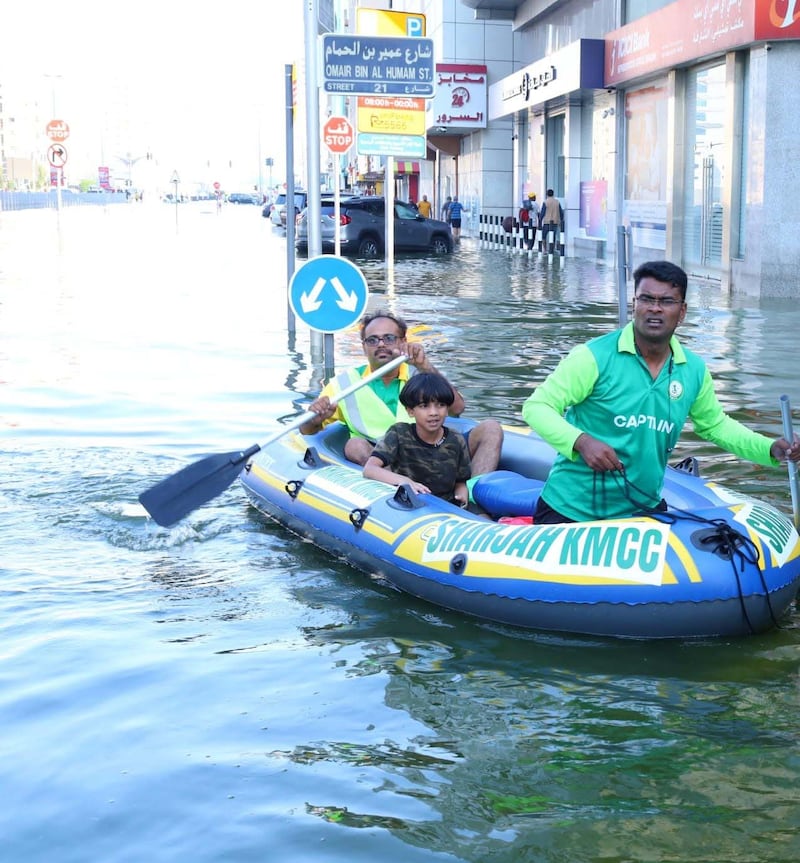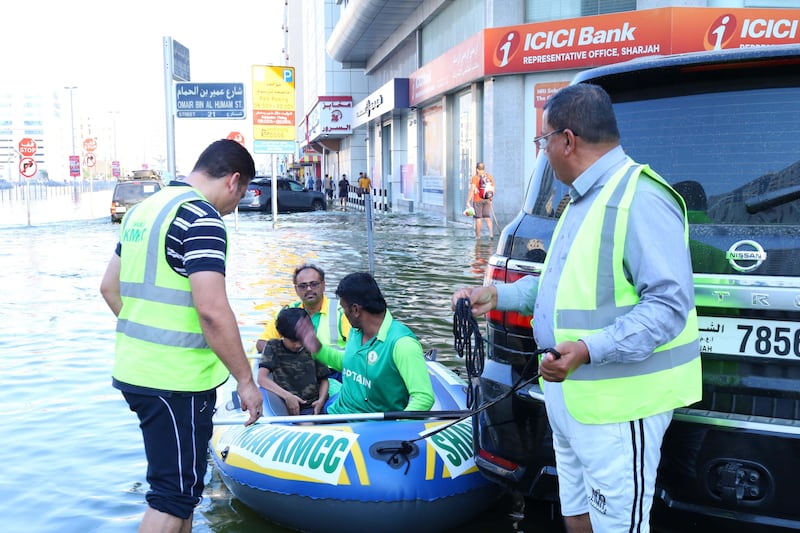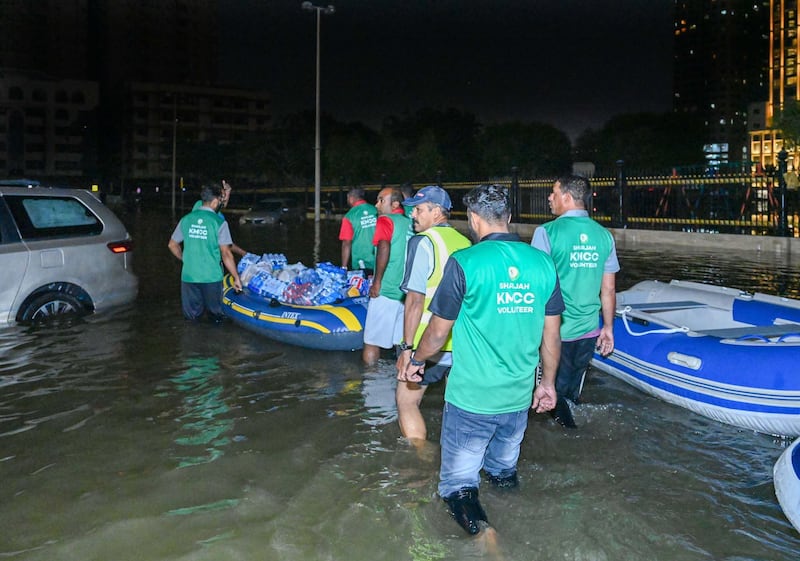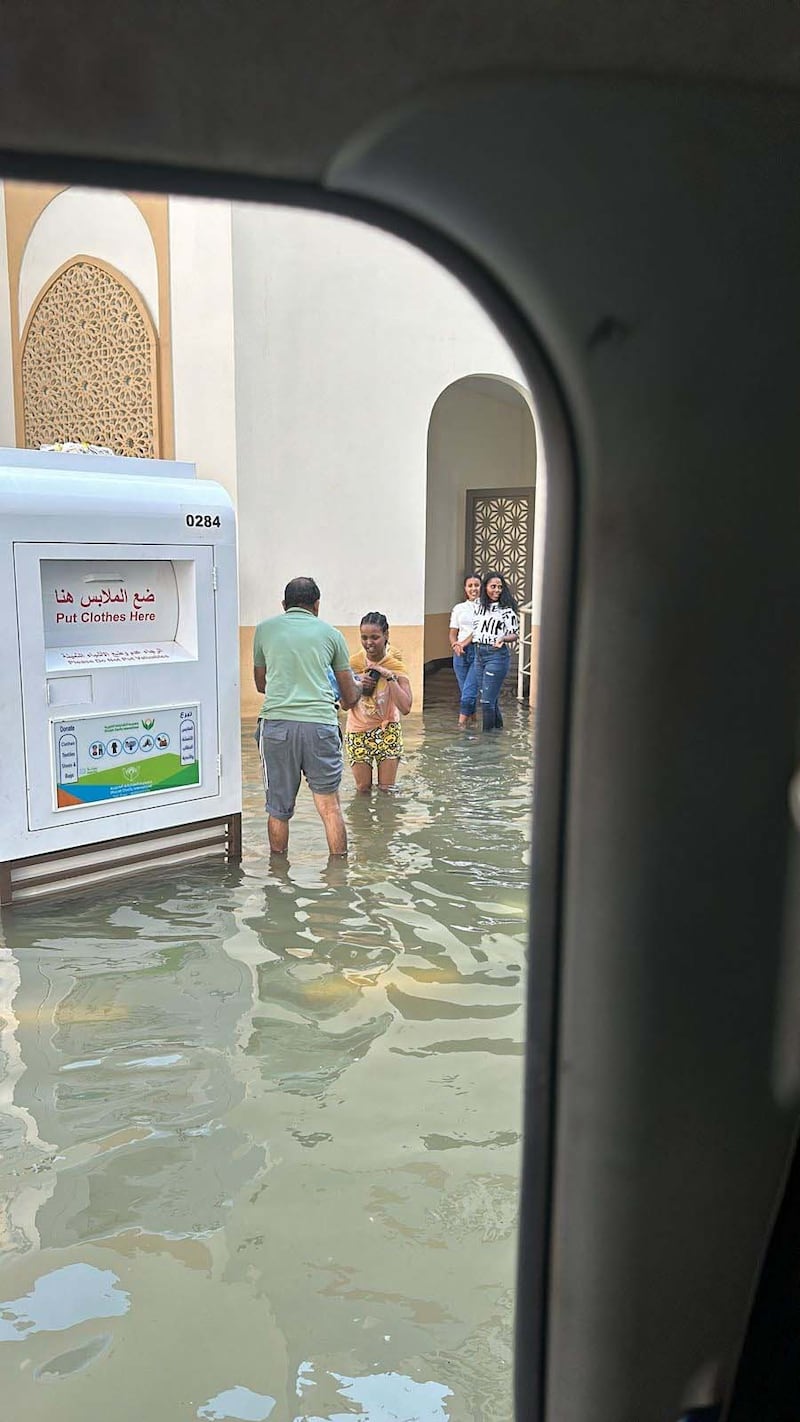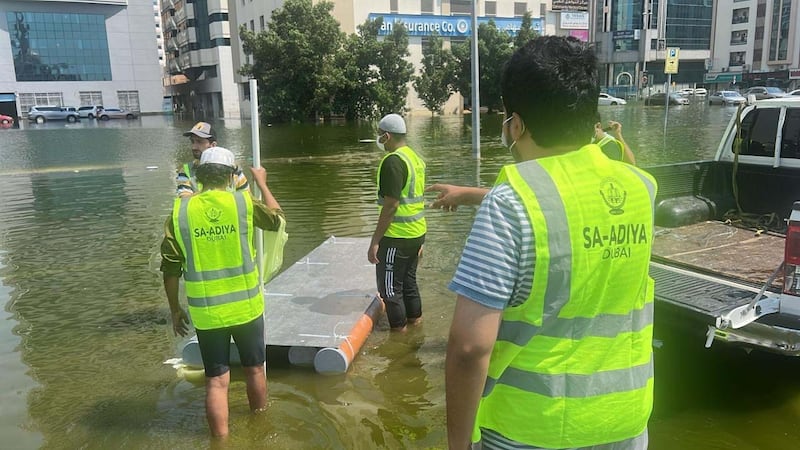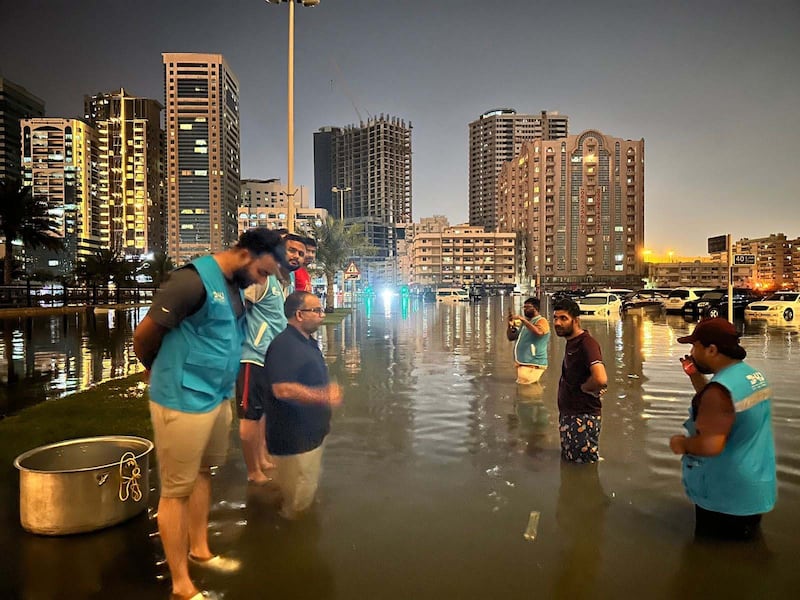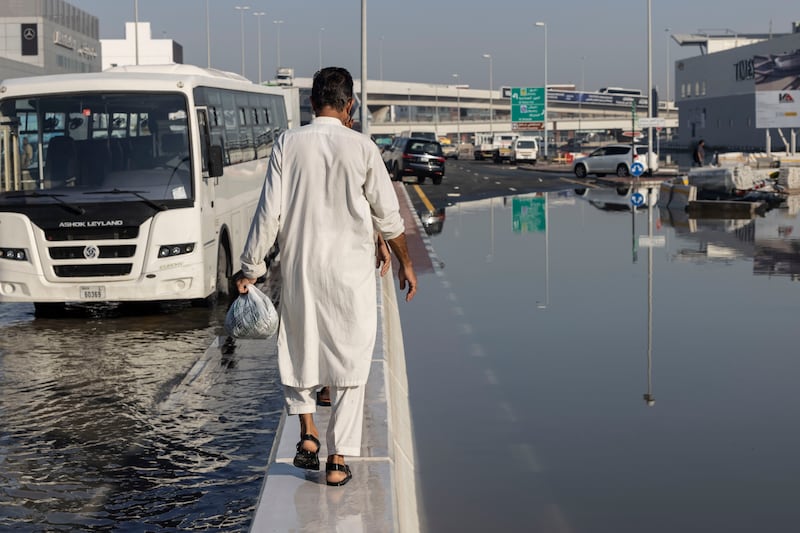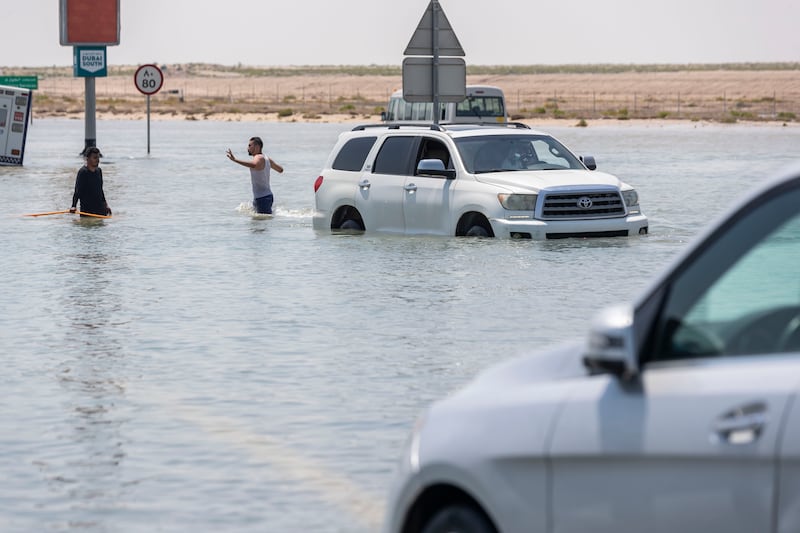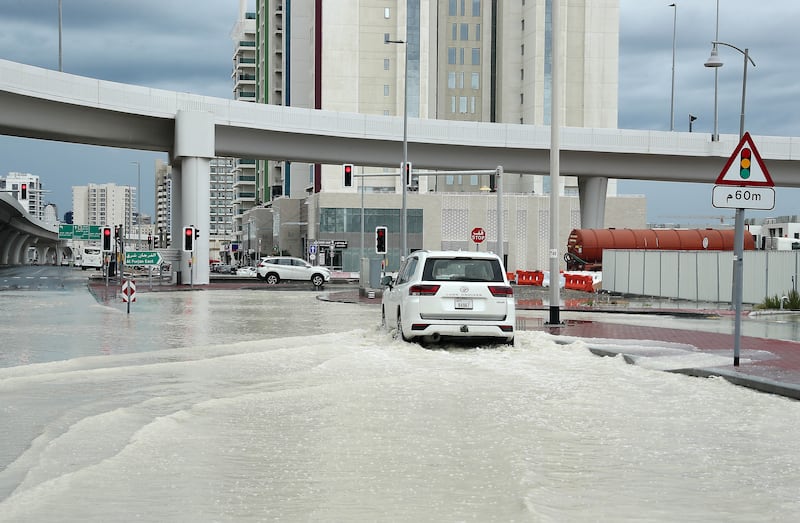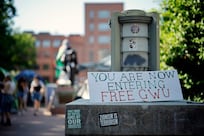Exactly one week ago, the people of the UAE went through a collective experience that was truly unprecedented. When the heaviest rainfall in more than seven decades arrived with gale-force winds, the extreme weather not only challenged the infrastructure, but it also disrupted the daily routine of millions. Seven days later, as the clean-up operation continues, we can say that despite the hardships this was a challenge that was met head-on with determination and brilliant community spirit.
The intensity of the weather that struck the Emirates and neighbouring Gulf countries will linger in people’s memories for years to come. At least twenty people lost their lives in Oman, and four died in the UAE. The volume of rain that hit the country was the highest since official records began in 1949.
More than 250 millimetres fell on Al Ain – the equivalent of two years’ average rainfall. In Dubai, many flights at the emirate’s main international airport – a global aviation hub – were cancelled, delayed or diverted. Flooding caused severe traffic disruption, schools shut their doors and many businesses told their staff to work from home.
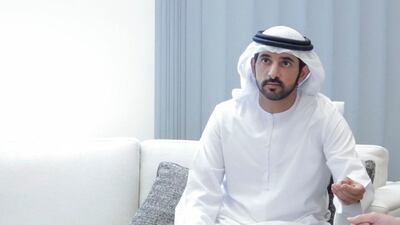
And yet, less than seven days later, the vast majority of the country’s roads have reopened, flights are arriving and departing as normal, employees are back at work and the school year has resumed. The violence of last week’s wind and rain would have overwhelmed many countries, particularly those that unfortunately lack the resources to prepare or rebuild. The UAE has shown what a focused and joined-up effort can achieve, and the swift recovery led by the authorities’ response was augmented by a strong personal response from people throughout the country.
There have been countless accounts of residents pulling together. Many were moved by the story of Ryan Cayamanda and Joshua Aldrin De Vera, two Filipino veterinary nurses in Dubai who worked for more than 72 hours through the storms to care for sick and injured animals.
A hard day's night - Dubai veterinary nurses trapped by flooding from Tuesday until Friday

Several UAE restaurants also stepped up, pledging to support people affected by the storm by giving them free meals. Some people took in others who could not reach their homes as they got cut out in the storm. But as the flood waters recede, there are longer-term challenges to confront.
There is a need for a full review of climate preparedness, which UAE President Sheikh Mohamed has called for. Sheikh Hamdan bin Mohammed, the Crown Prince of Dubai, also issued a directive to developers and management companies to provide alternative housing, food and free cleaning services timely and important. In an example of the government’s co-ordinated approach, the Dubai Land Department and the Real Estate Regulatory Agency will work with property developers to help get communities back on their feet.
The floods of 2024 also provide a salutary lesson for the future. No-one can be in doubt now that a changing climate does not only mean rising temperatures, but increased storms and rainfall too. The UAE is certain to feel more effects from global warming – yesterday, climate experts told The National that record melting of the world’s glaciers has led to sea level rises globally, putting the Middle East under threat from storm surges.
The authorities will plan accordingly, but it is incumbent on individuals and private businesses to display common sense and adapt to these changing times. People will hopefully think twice before disregarding weather warnings in future, and companies that offer non-essential services would be advised to close when extreme weather poses a risk of death and injury. The communal spirit that we have seen in the UAE over the past seven days will be needed again in the future.
